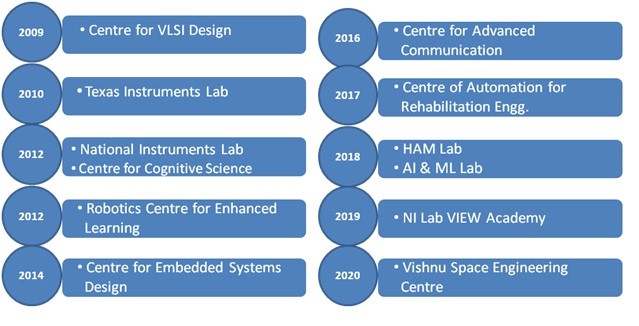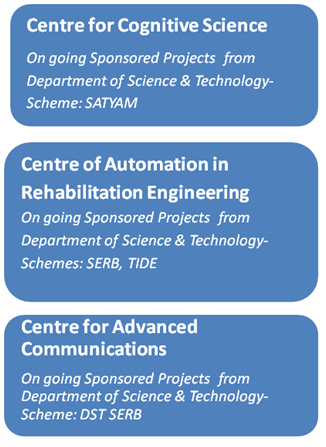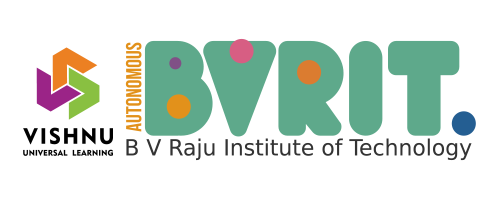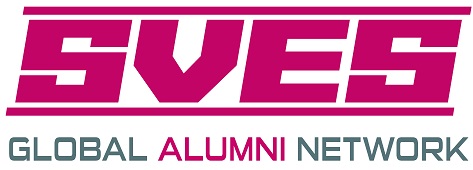Overview.
Why ECE
The Electronics and Communications Engineering (ECE) is one of the most promising branches of engineering study. The demand for ECE is increasing rapidly with advancement of emerging technologies like Internet of Things (IoT), Artificial Technology (AI), 5G Technologies, Micro and Nano Electronics, Robotics Automation, Big data etc This branch of engineering encompasses fields such as analog and digital circuit designing, Embedded Systems, Communication Systems, Signal processing and many other fields including Computer Science & Information Technology. The ECE students are free to choose any broad domain according to their passion and capabilities.
Benefits of joining ECE …
During the four years of Electronics and Communication Engineering, students will have the capability to gain knowledge of both the hardware and the software concepts like electronic circuits, devices, and communication systems, they also learn about embedded systems, programming languages and Information Technology.
Hence, the student will have freedom to choose the job offer between hardware and software fields.
Apart from public sector many core companies in the private sector like Intel Corporation, AMD, Johndeere, Soctronics, Hyundai Mobis, Robert Bosch, L&T Technology Services etc.., also provide job opportunities for Electronics and Communication Students.
Students with Electronics and Communication Engineering background will also have an opportunity to pursue their masters degree and Ph.D in different fields like Computer Science, Communication Engineering, Embedded Systems, Management Science, Signal Processing in India as well as abroad.
Study ECE @ BVRIT…
Department of ECE, BVRIT was established in the year 1999 with the motive of imparting state-of the- art and facilitating quality education, training and research in the field of Electronics and Communication Engineering and allied areas.
Department of ECE, BVRIT-Narsapur has been recognized as Research center by JNTUH since 2022. The faculty of BVRITN, who are appointed by JNTUH, can supervise the Research scholars. Also got NBA accreditation for the period 2022-2025
The Department has state-of the- art special laboratories in the areas of Embedded systems, Digital Signal Processing, VLSI design, Robotics, Advanced Communications and Artificial Intelligence and Machine Learning. Department is prestigious with the latest Cadence, Synopsys, Xilinx, LabVIEW from National Instruments & CCS from Texas Instruments modules and tools and MATLAB to cater various specializations. Further the Department conducts Add on courses and training programs for pre-final and final year UG and PG students in collaboration with CYIENT, SYNOPSYS, XILINX, CADENCE, NI, Jay Robotics, TI and C-DAC under their university and institutional Programs.
Students in the special labs are encouraged to submit the innovative ideas to different contests like TI Design contest, L & T Techgium Contest, TCS Codevita, Smart India Hackathon, Sankalp Hackathon, Rural Innovators Startup Conclave, Hackwithinfy. Students with innovation and passion are also encouraged to be a part of the research that is being processed under the guidance of eminent Doctorates in the department.
In the past 4 years a good number of students got job offers in the core companies like Johndeere, AMD, Intel Corporation, TCS, Robert Bosch, L & T Technology Services, Hyundai Mobis, Digilogic, Constelli Signals Pvt. Ltd., Soctronics, Nissan, Hysoc etc…
1
Program offered
50
Faculty members
2000+
Students graduated
500+
Research papers
Programs Offered
B.Tech - Electronics and Communication Engineering
240
Intake
M.Tech - VLSI Design
12
Intake
M.Tech - Embedded Systems
12
Intake
Industry Supported Project Labs @ ECE BVRIT

Research Labs @ ECE BVRIT

Vision
To create engineers in the stream of electronics and communication by being laser focused on providing the best and pleasurable service to every problem in society.
Mission
1. To provide domain affirmation, activities design to add moral values and social awareness for the improvement in the effective engineering education.
2. To reform the potency of engineering education through the development, implementation and management of exploration-based learning.
3. To heighten the thinking capability of young minds with domain knowledge and make them ready for the local and global industry.
PEOs, POs and PSOs
Programme Educational Objectives (PEOs)
1. To prepare students to excel in the graduate program; to succeed in industry / technical profession and also enable to pursue higher studies and continued life-long learning.
2. To provide students with solid foundation in mathematics, Sciences and basic engineering breadth they cover multi-disciplinary subjects enabling them to comprehend, analyze engineering problems and develop solutions.
3. To prepare students with strong engineering knowledge and technical competence to use techniques, skills and modern engineering tools that allow them to work effectively as electronics and communication engineer.
Programme Outcomes (POs)
The student will be able to:
PO 1: Apply the knowledge of mathematics, science, engineering fundamentals, and an engineering specialization to the solution of complex engineering problems.
PO 2: Identify, formulate, review research literature, and analyze complex engineering problems reaching substantiated conclusions using first principles of mathematics, natural sciences, and engineering sciences.
PO 3:Design solutions for complex engineering problems and design system components or processes that meet the specified needs with appropriate consideration for the public health and safety and the cultural, societal, and environmental considerations.
PO 4: Use research-based knowledge and research methods including design of experiments, analysis and interpretation of data, and synthesis of the information to provide valid conclusions.
PO 5: Create, select, and apply appropriate techniques, resources, and modern engineering and IT tools including prediction and modeling to complex engineering activities with an understanding of the limitations.
PO 6: Apply reasoning informed by the contextual knowledge to assess societal, health, safety, legal and cultural issues and the consequent responsibilities relevant to the professional engineering practice.
PO 7: Understand the impact of the professional engineering solutions in societal and environmental contexts, and demonstrate the knowledge of, and need for sustainable development.
PO 8: Apply ethical principles and commit to professional ethics and responsibilities and norms of the engineering practice.
PO 9: Function effectively as an individual, and as a member or leader in diverse teams, and in multidisciplinary settings.
PO 10: Communicate effectively on complex engineering activities with the engineering community and with society at large, such as, being able to comprehend and write effective reports and design documentation, make effective presentations, and give and receive clear instructions.
PO 11: Demonstrate knowledge and understanding of the engineering and management principles and apply these to one’s own work, as a member and leader in a team, to manage projects and in multidisciplinary environments.
PO 12: Recognize the need for, and have the preparation and ability to engage in independent and life-long learning in the broadest context of technological change.
Programme Specific Outcomes
The student will be able to:
1. utilize the knowledge of semiconductor technology in the design and development of VLSI systems.
2. utilize new cutting edge Technologies in Embedded system design, and use this erudition in their professional development and gain sufficient competence to attain the solution of engineering problems.
3. explore knowledge of electronics & communication engineering in core as well as multidisciplinary areas in innovative, dynamic and challenging environment.
Research & Development / Funded Projects
The Department is presently funded with R & D projects more than Rs. 1 crore from various government agencies under Department of Science and Technology, AICTE- RPS grants. The details are provided here.
1. Department of Science and Technology (DST), Govt. of India under Technology Interventions For Disabled & Elderly (TIDE) Program has sanctioned Rs 57 lakhs in 2020 for a period of three years for the project in the area of Motion Assistive Devices. Dr. K.Prabhakara Rao is the Principal Investigator, Dr. I A Pasha and Mr.B.Anil Kumar are Co-Investigators.
2. All India Council of Technical Education (AICTE), New Delhi has sanctioned Rs. 3.85 Lakhs for organizing a STTP (short term training program) on Latest Advancements on Metamaterials in the year 2019. The coordinator is Dr. B R Sanjeev Reddy.
3. All India Council of Technical Education (AICTE), New Delhi has sanctioned Rs.17.3 Lakhs under the MODROBS scheme for establishing an Advanced Communication Laboratory in the year 2019. The coordinator is Dr. I.A.Pasha.
4. Department of Science and Technology (DST), Govt. of India under Technology Interventions For Disabled & Elderly (TIDE) Program has sanctioned Rs 63 lakhs in 2018 for a period of three years for the project in the area of health monitoring . Dr. Sanjay Dubey is the Principal Investigator, Dr. I A Pasha and Dr.M.C.Chinnaaiah are Co-Investigators
5. Science and Engineering Research Board (SERB), India under Early Career Research Award (ECR) has sanctioned Rs Rs.44,89,610 in 2016 for a period of three years for a project in the area of Wearable Antennas. Dr. B. R. Sanjeeva Reddy is the Principal Investigator.
6. Department of Science and Technology (DST), Govt. of India under Science and Technology of Yoga and Meditation(SATYAM) has sanctioned Rs 36 lakhs in 2016 for a period of three years for a project in the area of YOGA. Dr.M.C.Chin naiah is the Principal Investigator.Dr. I A Pasha and Prof. Sanjay Dubey are Coinvestigators
7. Center for Cognitive Sciences: A centre for Cognitive Science Research is established in the department of ECE to promote this research activity in this emerging new area. Department of Science & Technology , Govt of India has sanctioned Rs.45 lacs for a period of 3 years for a project on “Assistive Technology devices for Quadriplegic & ALS patients”. Dr. I. A. Pasha is the principal investigator.
8. AICTE-RPS Funded Project: All India Council for Technical Education (AICTE), New Delhi has sanctioned Rs.16.05 lakhs for a period of 2 years for a project on Radar signal processing submitted by Dr. I. A. Pasha under Research Promotion Scheme (RPS).
9. DST Funded Woman’s Research Project Department of Science & Technology , Govt of India has sanctioned Rs.23 lakhs for a period of 3 years for a project on “Reconfigurable real time signal capturing using FPGA in VLSI Technology” submitted by Mrs.Jayshree Das under the mentorship of Dr. I.A.Pasha.
10. DST Funded Brainstorming Meeting: Department of Sciences and Technology, Govt of India has sanctioned Rs.8.5 lakhs for one day Brainstorming Meeting on “Brainstorming Meeting On Eye tracking and Pupillometry: A Window into Cognition And Cognitive Disorders” coordinated by Mr. M C Chinnaiah.
11. All India Council of Technical Education, New Delhi has sanctioned Rs.7 lakhs for a period of 2 Weeks for an SDP on “Assissitive Technology Devices & Rehabilitation Engineering” coordinated by by Dr. I.A.Pasha.










